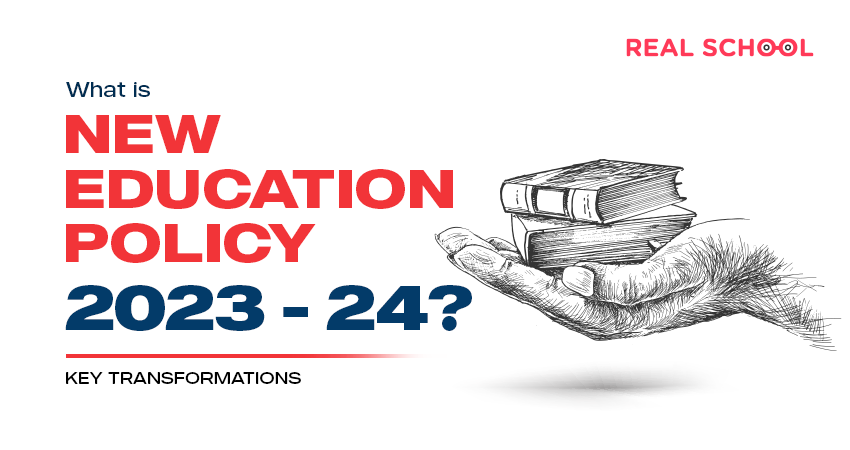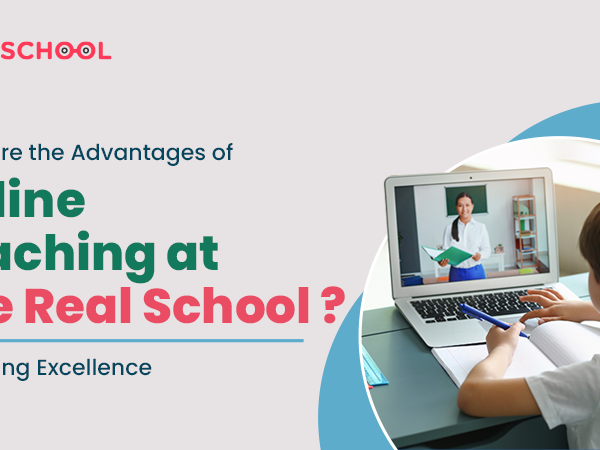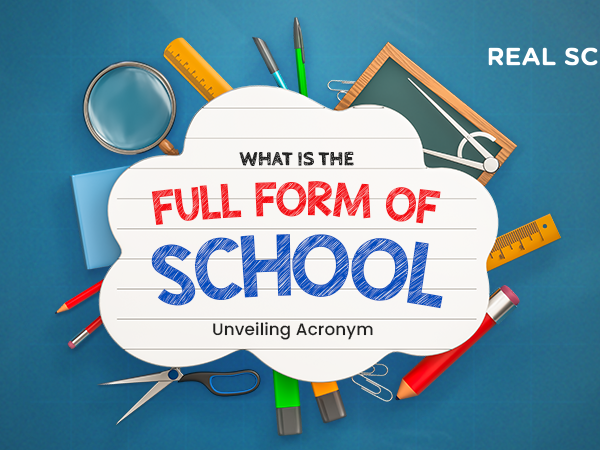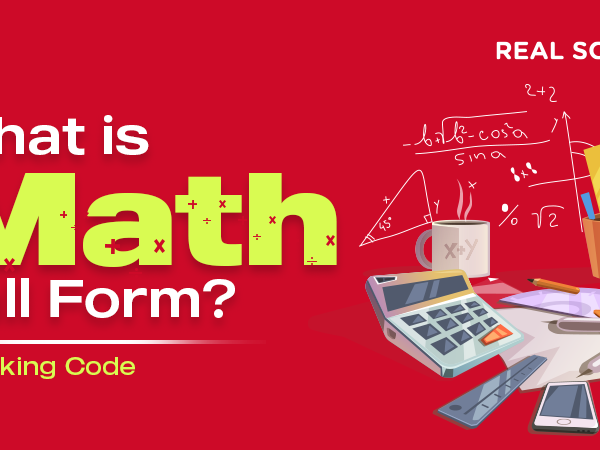Education policies play a pivotal role in shaping the trajectory of a nation’s development by influencing its educational landscape. The New Education Policy 2023-24, introduced with the aim of transformative changes, has sparked considerable interest and discussions. In this exploration, we delve into the key transformations outlined in the policy and their potential implications on the educational ecosystem.
What is the New Education Policy 2023-24?
Core Objectives of the New Education Policy 2023-24
- Fostering holistic development of students: One of the fundamental objectives of the New Education Policy is to foster the holistic development of students. It emphasizes not only academic excellence but also the development of critical thinking, creativity, and ethical values.
- Emphasizing flexibility and choice in education: The policy recognizes the diverse learning styles and aspirations of students. By promoting flexibility and choice in education, it aims to provide personalized learning experiences that cater to individual strengths and interests.
- Aligning education with the needs of the evolving job market: To prepare students for the dynamic job market, the policy seeks to align education with industry requirements. It emphasizes the development of practical skills, entrepreneurship, and a deep understanding of emerging technologies.
Structural Changes in School Education
- Redefining the school curriculum and assessment methods: The New Education Policy envisions a revamped school curriculum that emphasizes experiential learning, critical thinking, and a multidisciplinary approach. Assessment methods are also expected to shift towards competency-based evaluations, moving away from traditional rote memorization.
- Introducing innovative pedagogical approaches: To make learning more engaging and relevant, the policy encourages the adoption of innovative pedagogical approaches. This includes project-based learning, collaborative activities, and the integration of real-world applications into the curriculum.
- Strengthening the integration of technology in classrooms: Recognizing the role of technology in modern education, the policy advocates for the increased integration of digital tools in classrooms. This includes leveraging online resources, interactive learning platforms, and technology-enabled assessments.
Higher Education Reforms
- Transforming the higher education system for global competitiveness: The policy aims to elevate the status of Indian higher education on the global stage. This involves initiatives to enhance the quality of education, research infrastructure, and global collaborations with prestigious institutions.
- Promoting multidisciplinary education and research: Breaking away from siloed disciplines, the policy promotes multidisciplinary education and research. It encourages students to explore diverse fields and fosters collaboration between different academic disciplines.
- Enhancing accessibility and inclusivity in higher education: To ensure equal opportunities for all, the policy focuses on enhancing accessibility and inclusivity in higher education. This includes measures to support students from diverse backgrounds, including those with disabilities.
Also Read: How Do You Start Homeschooling For Your Child?
Other Initiatives in the New Education Policy 2023-24
Skill Development Initiatives
- Emphasizing skill-based learning from an early age: The policy recognizes the importance of skill development alongside traditional academic pursuits. It encourages skill-based learning from an early age, aiming to equip students with practical skills relevant to their chosen career paths.
- Aligning skill development with industry requirements: To bridge the gap between education and employment, the policy seeks to align skill development initiatives with industry requirements. This involves close collaboration between educational institutions and industries to identify and address skill gaps.
- Facilitating seamless transitions from education to employment: In line with global trends, the policy places a strong emphasis on facilitating seamless transitions from education to employment. This involves providing students with the necessary skills, career guidance, and internship opportunities.
Language and Cultural Emphasis
- Encouraging multilingualism and cultural diversity: Recognizing India’s rich linguistic and cultural diversity, the policy encourages multilingualism. It promotes the inclusion of regional languages in education, fostering a deeper connection to cultural heritage.
- Integrating regional languages into the curriculum: The policy advocates for the integration of regional languages into the curriculum, not only as subjects of study but also as mediums of instruction. This aims to preserve and promote linguistic diversity.
- Promoting a deeper understanding of India’s cultural heritage: Beyond linguistic diversity, the policy emphasizes the importance of understanding India’s cultural heritage. It encourages educational institutions to incorporate cultural studies and activities that foster a sense of pride and appreciation for the nation’s diverse traditions.
Teacher Training and Professional Development
- Revamping teacher training programs for contemporary needs: Recognizing the pivotal role of educators, the policy emphasizes the revamping of teacher training programs. This includes equipping teachers with modern teaching methodologies, technology integration skills, and strategies for addressing diverse learning needs.
- Prioritizing continuous professional development for educators: The policy acknowledges the dynamic nature of education and the need for continuous professional development for educators. It encourages institutions to provide opportunities for teachers to upgrade their skills and stay abreast of the latest developments in their fields.
- Recognizing and rewarding excellence in teaching: In a bid to elevate the status of teaching as a profession, the policy promotes the recognition and rewarding of excellence in teaching. This involves establishing mechanisms to identify and celebrate exemplary educators who make significant contributions to student learning.
Assessment and Examination Reforms
- Moving towards competency-based assessments: Departing from traditional rote memorization, the policy advocates for competency-based assessments. This shift aims to evaluate students based on their understanding of concepts, critical thinking abilities, and practical application of knowledge.
- Reducing the emphasis on rote memorization: To encourage a deeper understanding of subjects, the policy seeks to reduce the emphasis on rote memorization in assessments. This aligns with the broader objective of nurturing analytical thinking and creativity among students.
- Introducing a more flexible and inclusive examination system: The policy envisions a more flexible and inclusive examination system. This includes options for students to choose subjects based on their interests, multiple opportunities for assessments, and a focus on evaluating a broad spectrum of skills.
Challenges and Criticisms in the New Education Policy 2023-24
- Addressing concerns about the implementation of the policy: While the New Education Policy 2023-24 holds transformative potential, challenges related to its effective implementation have been raised. Addressing concerns about infrastructure, teacher preparedness, and equitable access to opportunities is crucial for the success of the policy.
- Balancing the aspirations of diverse stakeholders: Education policies often need to balance the aspirations of diverse stakeholders, including students, parents, educators, and policymakers. Striking the right balance to meet the varied needs and expectations is a delicate yet crucial task.
- Navigating potential hurdles in the transition phase: The transition phase from existing educational frameworks to the proposed changes can present hurdles. Navigating these challenges requires strategic planning, effective communication, and a phased approach to implementation.
Conclusion
In conclusion, the New Education Policy 2023-24 holds the promise of ushering in a new era of education in India. By addressing key areas such as holistic development, flexibility, skill development, and cultural inclusivity, the policy aims to create a robust educational ecosystem. Encouraging active participation and feedback from stakeholders will be pivotal in refining and implementing the policy effectively.
Know more from the expert for your child education – The Real School
FAQs
Q1: How does the New Education Policy 2023-24 promote flexibility in education?
A: The policy promotes flexibility by allowing students to choose subjects based on their interests, encouraging multidisciplinary education, and providing options for assessments that cater to diverse learning styles.
Q2: What measures are in place to enhance accessibility and inclusivity in higher education?
A: The policy aims to enhance accessibility and inclusivity in higher education through measures such as supporting students from diverse backgrounds, including those with disabilities, and creating an inclusive learning environment.
Q3: How is the New Education Policy 2023-24 addressing skill development from an early age?
A: The policy emphasizes skill-based learning from an early age by integrating practical skills into the curriculum, aligning skill development with industry requirements, and facilitating seamless transitions from education to employment.
Q4: What steps are being taken to recognize and reward excellence in teaching?
A: The policy encourages the recognition and rewarding of excellence in teaching by establishing mechanisms to identify and celebrate exemplary educators. This includes acknowledging contributions to student learning and professional development.
Q5: How can stakeholders actively participate in the refinement of the New Education Policy?
A: Stakeholders can actively participate by engaging in open dialogue, providing constructive feedback, and sharing their experiences and insights. Collaboration between parents, students, educators, and policymakers is essential for the ongoing improvement of the policy.
Also Read: What is a Montessori Preschool Program?







